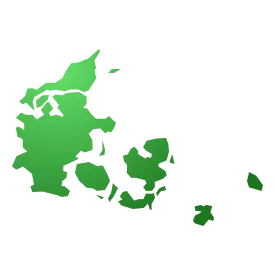Denmark


Discover Denmark
Currency
Danish Krone
Capital
Copenhagen
Languages Spoken
Danish
Denmark is located in northern Europe. The earliest traces of human habitation in the area dates back to the Stone Age, around 12,000 BC. Over time, various Germanic tribes settled in the region, and by the 8th century, Denmark began to emerge as a distinct political entity.
The Viking Age, from the 8th to the 11th century, saw Danish Vikings embarking on daring seafaring expeditions, raiding and trading across Europe. Danish Vikings established settlements in England, Ireland, and even ventured as far as Greenland and Vinland (North America).
In the late 10th century, Harald Bluetooth, a Danish king, united Denmark and introduced Christianity to the country. His reign marked the beginning of a centralized monarchy and the transition from paganism to Christianity. Denmark continued to grow in influence and power, and in 1397, the Kalmar Union was formed, bringing together Denmark, Sweden, and Norway under the Danish Queen Margaret I.
The Kalmar Union lasted until 1523 when Sweden declared its independence. Denmark experienced a period of turmoil and conflict during the Protestant Reformation, as the Catholic Church's power waned and Protestantism gained ground. King Christian IV, who reigned from 1588 to 1648, is considered one of Denmark's most influential monarchs. He led military campaigns, promoted trade, and oversaw the construction of impressive buildings, such as the iconic Rosenborg Castle.
Denmark faced several challenges in the 17th and 18th centuries. It lost territories to Sweden and faced internal strife during the absolute monarchy of King Christian V. However, in the late 18th century, Denmark experienced a period of enlightenment and cultural revival known as the Danish Golden Age. This era saw advancements in literature, philosophy, and the arts, with notable figures like Hans Christian Andersen and Søren Kierkegaard emerging.
In the early 19th century, Denmark faced territorial losses and economic struggles. The country was involved in various wars and conflicts, including the Napoleonic Wars and the German-Danish War of 1864. These conflicts led to the loss of Danish territories to Prussia and Austria.
The 20th century brought both prosperity and challenges to Denmark. World War I did not directly affect the country, but it experienced economic hardships during the Great Depression. During World War II, Denmark was occupied by Nazi Germany from 1940 to 1945. However, the Danish resistance movement managed to save most of the country's Jewish population from deportation to concentration camps.
After the war, Denmark underwent a period of reconstruction and joined international organizations such as NATO and the United Nations. The Danish welfare state was established, providing citizens with a comprehensive social safety net. Denmark has since embraced liberal social policies, such as legalizing same-sex partnerships in 1989 and same-sex marriage in 2012.
In recent years, Denmark has positioned itself as a progressive, environmentally conscious nation. It has become a leader in renewable energy and sustainable development.
Today, Denmark remains a constitutional monarchy with a parliamentary system. It is known for its high standard of living, strong welfare system, and commitment to social equality.
Source ChatGPT
Experience Points


XP EARNED OUT OF 0
Points Breakdown
| Sticker Collected | 0 XP |
| Card Collected | 0 XP |
| Bonuses | 0 XP |
| Total | 0 XP |
Your travel history

First Visit
---
Last Visit
---
You've logged 0 visits.

